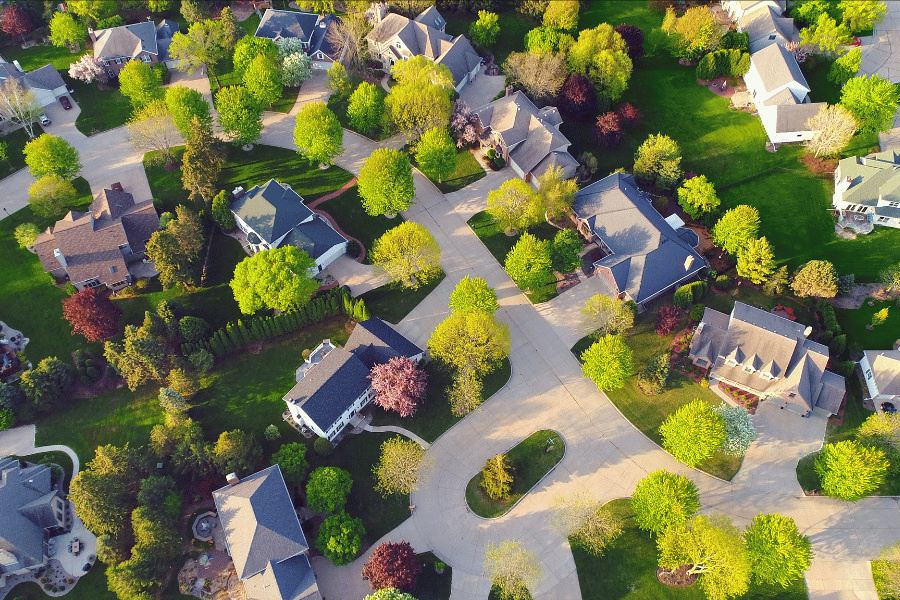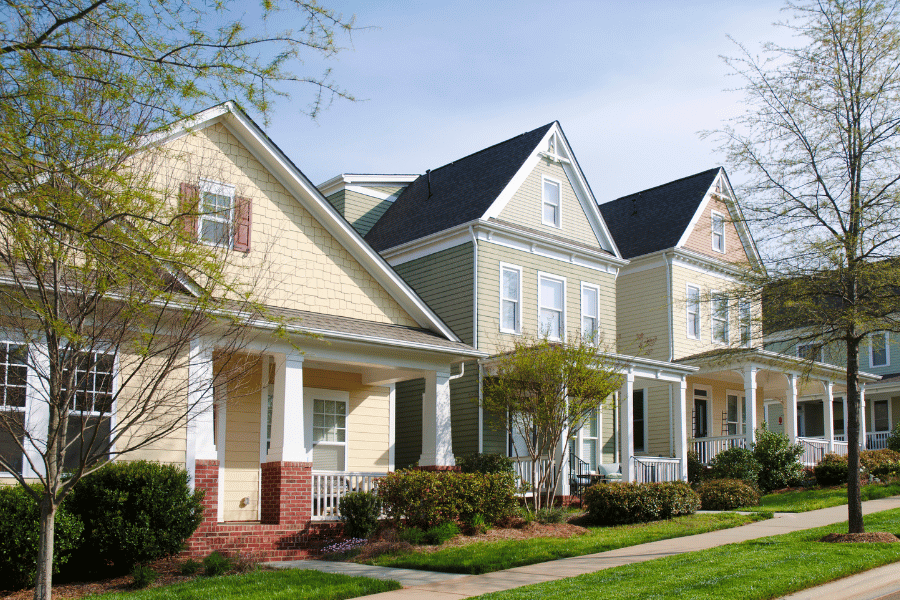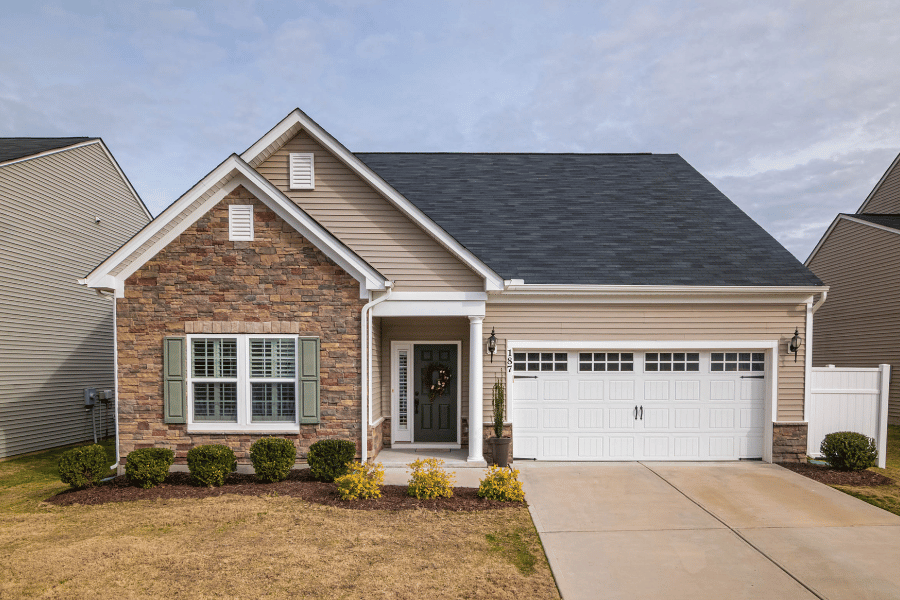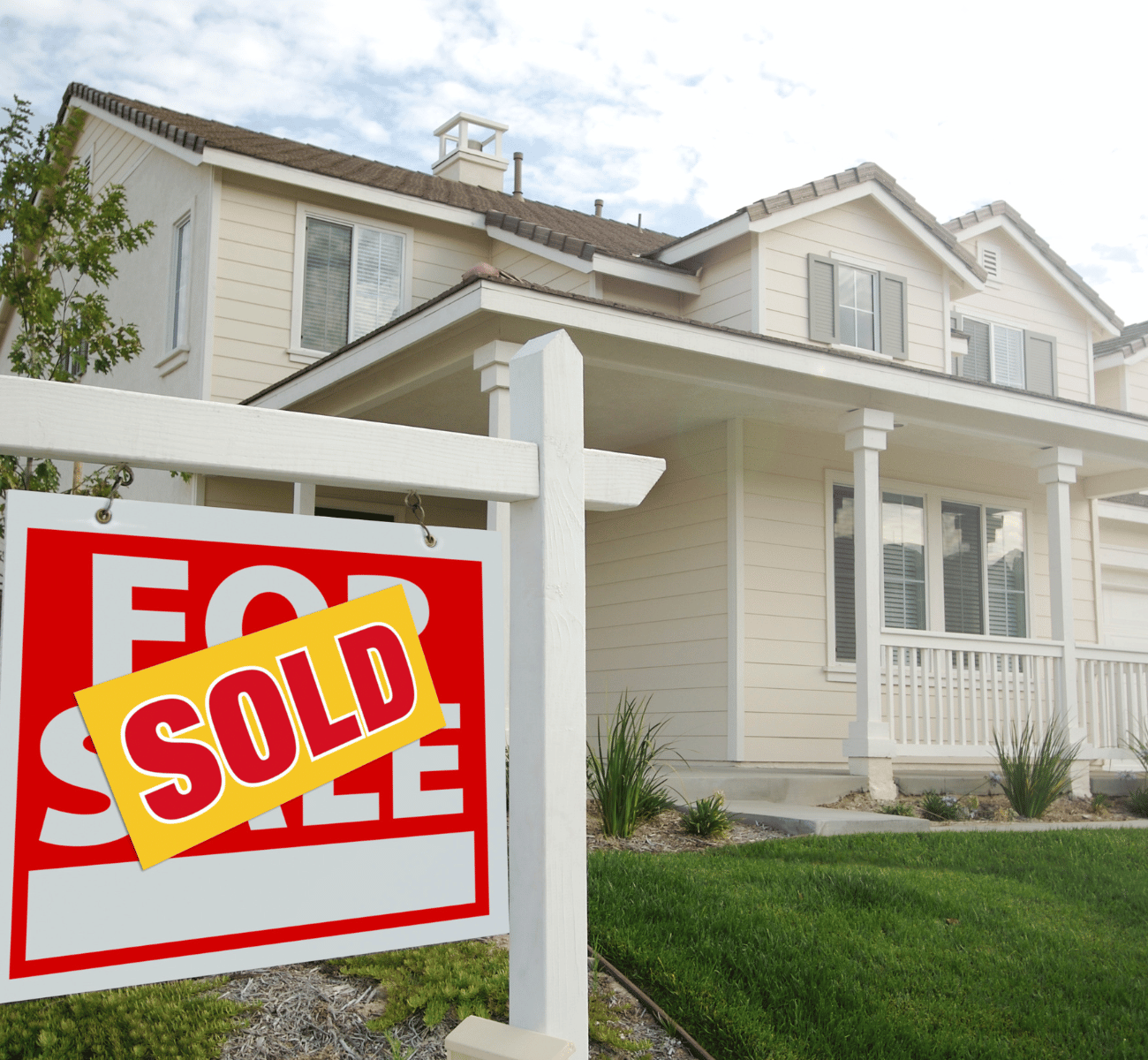When is the Best Time To Buy a House?
Are you on the fence about when you should buy your next house? Here is what you need to know about the best time to buy a home.
The most challenging part of the home-buying process is deciding when to start. Unless you urgently need to move, choosing the best time to buy a house can be extremely difficult, especially if you are a first-time home buyer.
Finding the perfect time to buy a home involves more than just finding a house you love. Market conditions, seasonal trends, personal finances, and local factors all play crucial roles in determining when you should make your move.
The Raleigh-Durham market operates differently from many other cities. The steady population growth, driven by tech companies, universities, and healthcare systems, creates consistent demand. However, seasonal patterns, interest rate fluctuations, and local development cycles all create windows of opportunity for savvy buyers who know what to look for.
In this comprehensive guide, we'll walk you through everything you need to know about timing your home purchase in the Triangle area, so you can make an informed decision that aligns with both your personal goals and market realities.
Keep reading to learn all about the best time to buy a house and how to know if you are ready.
1. The Best Months and Seasons to Buy
A new study has predicted that the best time to buy a home is in October due to fewer competitive shoppers and increased housing supply. However, market conditions can change throughout the year depending on the season.
Spring: The Traditional Peak Season
Spring (March through May) is traditionally the busiest time for real estate activity in Raleigh. While you'll have the largest inventory to choose from, you'll also face the most competition from other buyers. Homes that hit the market in spring often sell quickly and may receive multiple offers, potentially driving prices higher.
Pros:
- Maximum inventory selection
- Pleasant weather for house hunting
- Gardens and landscaping look their best
- Good timing for families with school-age children
Cons:
- Highest competition from other buyers
- Premium pricing due to demand
- Limited negotiating power
Fall: The Sweet Spot for Buyers
September through November often present the best opportunities for motivated buyers in the Raleigh market. Sellers who listed in spring but didn't sell may be more motivated to negotiate, and the competition from other buyers typically decreases.
Pros:
- Motivated sellers who've been on the market longer
- Less competition from other buyers
- More room for price negotiations
- Still pleasant weather for moving
Cons:
- Smaller inventory compared to spring
- Sellers may choose to wait until spring rather than reduce prices
Winter: Maximum Negotiating Power
December through February offers the least inventory but potentially the best deals. Sellers listing during winter are often highly motivated due to job relocations, financial changes, or other urgent circumstances.
Pros:
- Highest negotiating power
- Motivated sellers
- Minimal competition
- Potential for significant savings
Cons:
- Limited inventory
- Weather challenges for house hunting
- Difficult timing for families with children in school
Summer: A Mixed Market
June through August sees continued activity from spring, but the intense North Carolina heat can make house hunting less pleasant. However, families often prefer summer moves to avoid disrupting the school year.
Pros:
- Good timing for families with school-age children
- Extended daylight hours for after-work house hunting
- Outdoor features like pools and patios are at their most appealing
- Sellers may be more motivated as summer progresses
Cons:
- Hot, humid weather makes house hunting uncomfortable
- Continued competition from spring buyers early in the season
- Higher utility costs are more apparent during viewing
- Vacation schedules can complicate closing timelines

2. Navigating Sellers vs. Buyers Market
In real estate, you will hear the words seller's market and buyer's market. You will need to understand what these words mean and how they will impact the home-buying and selling process.
A Sellers Market
A seller's market refers to a time when market conditions and housing demand exceed the supply. In a seller's market, the seller has the upper hand because there are more home buyers than homes on the market.
During a seller's market, homes will sell quickly and receive multiple offers. As a buyer, you may want to avoid buying a home during a seller's market. However, if you are looking for a quick sale, then this might be the best time for you to buy a home.
In these conditions:
- Time your offer carefully: Submit offers immediately after viewing desirable properties
- Come in strong: Consider offering at or above the asking price with minimal contingencies
- Get pre-approved: Having financing ready gives you a competitive edge
- Be flexible: Accommodating seller preferences on closing dates can make your offer stand out
A Buyer's Market
A buyer's market is the exact opposite; the demand exceeds the supply, and the buyer has the upper hand. Prices will stay low as a result, and buyers will have more options to choose from and more room to negotiate. During this time, homes will stay on the market longer, which may be a disadvantage if you need to move urgently.
In these conditions:
- Take your time: You can afford to be more selective
- Negotiate hard: Ask for price reductions, seller concessions, or repairs
- Include contingencies: Protect yourself with inspection and financing contingencies
- Consider fixer-uppers: You may find better deals on homes needing work
The housing market in Raleigh is categorized as a seller's market because of low inventory. However, there are many up-and-coming neighborhoods and plenty of new construction that can tip the scale for buyers.

3. Key Factors to Consider When Buying a Home
There are countless things to consider when buying a home. Depending on your personal preferences, goals, and state in life, some may have a heavier impact on you than others. Here are some of the top things home buyers need to consider to set themselves up for home-buying success.
Location
Location is always one of the top things to consider when buying a home. If there is one thing, a buyer should never sacrifice on its location. Location will have a large impact not only on the home price but also on your day-to-day life.
Start your home search by zeroing down on one or many locations, and from there, you can learn what constitutes a great deal, a good deal, and a lousy deal. Make sure to research:
Neighborhood Quality
- Research crime statistics and safety ratings
- Visit the area at different times of day and week
- Consider proximity to work, schools, and amenities
- Evaluate the neighborhood's growth trajectory
Commute and Transportation
- Factor in rush hour traffic patterns
- Consider future transportation developments
- Evaluate walkability and public transit access
- Account for toll roads and commuting costs
Home Size
When buying a home, you need to remember that you will most likely live in this home for years, and your family may change. Ensure you are buying a home size that will accommodate your family or lifestyle over the time you plan on staying in that house.
This means buying a home with the right number of bedrooms or bathrooms. You should also consider whether the home has the potential to add any spaces or renovations in the future. Make sure to consider:
Current and Future Needs
- Consider your family's growth plans
- Think about remote workspace requirements
- Evaluate storage needs
- Plan for aging in place if relevant
Functional Layout
- Assess traffic flow between rooms
- Consider entertaining and lifestyle needs
- Evaluate natural light and room orientation
- Think about renovation potential
Price
Last but definitely not least is the price. Another factor that you should never sacrifice when buying a home.
Consider your down payment and how much you can afford monthly towards your expenses. You should also have savings for emergencies and hidden costs you might not expect.
Total Cost of Ownership
- Property taxes (which vary significantly across Wake County)
- Homeowners insurance
- HOA fees if applicable
- Maintenance and repair costs
- Utility expenses
Market Value Assessment
- Research comparable sales in the area
- Consider the home's appreciation potential
- Factor in any needed immediate repairs or updates
- Evaluate the price per square foot compared to similar homes

4. How To Know When You Are Ready to Buy
Whether you are currently a renter or a homeowner looking for a new home, you still may be asking yourself if now is the best time to buy a home. Here are a couple of rules of thumb to ensure you are ready to buy a home.
You Have a Healthy Credit Score
A healthy credit score is the key to obtaining a mortgage. Borrowers can have a credit score as low as 500 to qualify for some home loans, but this leads to higher down payments and rates. If you have a high credit score now, you can qualify for much better interest rates and loan terms.
- Aim for 740+ for the best rates
- 620+ for conventional loans
- Consider FHA loans if your score is 580+
- Review and dispute any credit report errors well in advance
You Can Afford the Down Payment and Closing Costs
Before buying a home, you should always ensure that you can afford it. A good way to test this is to ensure you have enough money saved for the down payment and closing costs.
The down payment is typically a percentage of the overall home price. Most of the time, the closing costs are negotiable but stay around 2% to 5% of the property's sale price. Make sure to save extra money for deposits, inspections, maintenance, and unexpected costs.
Down Payment
- Conventional loans: 5-20% typically required
- FHA loans: As low as 3.5%
- VA loans: 0% down for qualified veterans
- Consider down payment assistance programs available in North Carolina
Emergency Fund
- Maintain 3-6 months of expenses after closing
- Budget for unexpected repairs and maintenance
- Don't deplete all savings for the down payment
Debt-to-Income Ratio
- Keep total monthly debts below 36% of gross income
- Include the projected mortgage payment in this calculation
- Pay down existing debts before applying for a mortgage
Lifestyle Readiness
The best way to know if now is a good time to buy a house is if you know what you want. Sometimes, it is as simple as being financially stable and ready for the move.
There will be many decisions to be made while searching for a home, but if you have a good idea of the size, shape, style, or location, then you are more likely to choose a home you'll be happy in.
Consider making a list of your home must-haves and nice-to-haves. This way, you can sort out what is really important to you and narrow down the search.
Stability Factors
- Job security and income predictability
- Plans to stay in the area for at least 3-5 years
- Readiness for homeownership responsibilities
- Clear understanding of your housing needs

5. Home Buying Tips
The home-buying process is extensive, and you'll need to make many compromises along the way. In order to achieve home-buying success, follow these simple tips.
- Know your credit score.
- Get comfortable with making compromises.
- Plan ahead
- Stay flexible
- Find a trusted real estate agent
- Educate yourself on the home-buying process
- Be persistent
- Search comparable homes
- Don't forget to check the market for foreclosed homes.
Growth Areas to Watch
- Downtown Raleigh: Urban living with walkability
- North Hills: Mixed-use development with luxury options
- Midtown: Emerging area with new construction
- Suburbs like Apex, Cary, and Wake Forest: Family-friendly with excellent schools
Local Market Insights
- New construction is prevalent due to population growth
- Inventory can be tight in desirable school districts
- Property taxes vary significantly between municipalities
- Consider flood zone requirements, especially in eastern Wake County
6. Practical Steps for Out-of-State Buyers
Research Phase
- Use virtual tours and video walkthroughs initially
- Research specific neighborhoods online
- Connect with a local real estate agent early in the process
- Understand North Carolina's disclosure requirements
Visit Planning
- Plan concentrated house-hunting trips
- Schedule inspections and appraisals efficiently
- Meet with local lenders and service providers
- Explore neighborhoods at different times of day
Local Considerations
- Understand HOA regulations if applicable
- Research utility providers and average costs
- Learn about local property tax assessment schedules
- Consider proximity to major employers like Research Triangle Park

Methodology
Data was sourced from the National Association of Realtors and Bankrate to determine the best time to buy a home.
FAQs
What is the cheapest month to buy a house?
On average, November and December are the best times to buy a home at the lowest price possible. This is because there won't be as many homes to choose from, and you'll face less competition.
If the market is less competitive, then you may be able to purchase a home below the asking price.
What is the most expensive month to buy a house?
May is typically the most expensive month to buy a home because of increased demand. Most people are on the house hunt during April, May, and June, which leads to higher competition and higher home prices.
How much can you negotiate on a home?
If you are in a buyer's market, you could offer as much as 20% under the asking price. However, the majority of the time, you will only be able to negotiate off about 1%- 10% below the asking price.
What month do houses sell the most?
This depends greatly on the location, current market, and other factors, but typically, homes sell the best between April and October. This is because the demand outweighs the supply, and home prices can increase and sell fast.
How early should I start house hunting?
Typically, home buyers will start looking for a house about ten weeks out from move-in day. Although you can start looking whenever the time is right for you, make sure to track the local market to stay up to date with new listings.
It is recommended to research the average number of days a new listing stays on the market so you can better manage your time during the home search.
Making Your Move: Final Thoughts
The "best" time to buy a home ultimately depends on your personal circumstances aligning with favorable market conditions. While you can't control interest rates or inventory levels, you can control your financial readiness and market knowledge.
At Raleigh Realty, we understand the local market dynamics and can help you navigate both the timing and process of buying your home. Our experienced agents know the neighborhoods, schools, and market trends that matter most to your decision.
Whether you're a first-time buyer or relocating to the Triangle area, we're here to help you find not just a house, but the right home at the right time for your situation. Contact us today to discuss your home-buying goals and develop a strategy that works for your timeline and budget.




